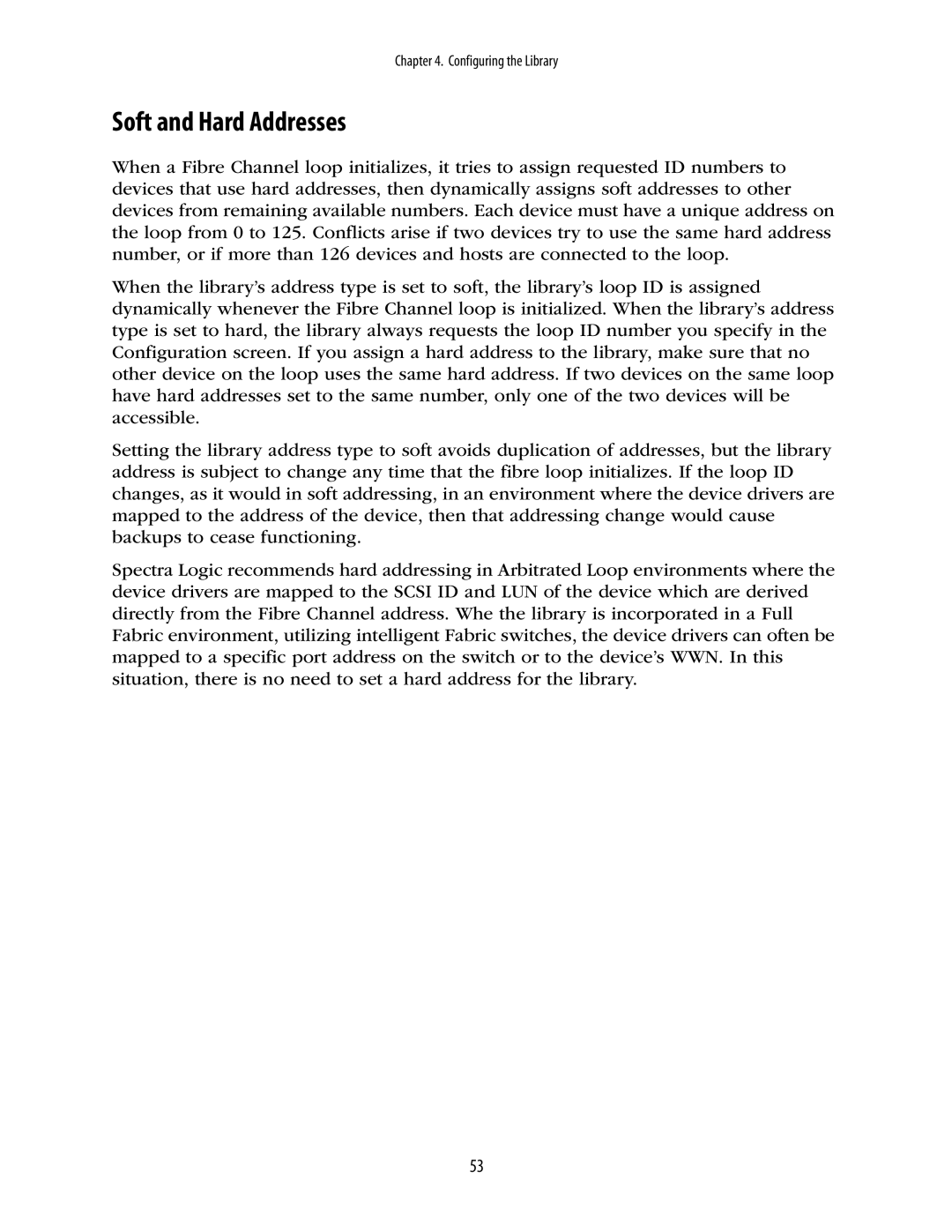Chapter 4. Configuring the Library
Soft and Hard Addresses
When a Fibre Channel loop initializes, it tries to assign requested ID numbers to devices that use hard addresses, then dynamically assigns soft addresses to other devices from remaining available numbers. Each device must have a unique address on the loop from 0 to 125. Conflicts arise if two devices try to use the same hard address number, or if more than 126 devices and hosts are connected to the loop.
When the library’s address type is set to soft, the library’s loop ID is assigned dynamically whenever the Fibre Channel loop is initialized. When the library’s address type is set to hard, the library always requests the loop ID number you specify in the Configuration screen. If you assign a hard address to the library, make sure that no other device on the loop uses the same hard address. If two devices on the same loop have hard addresses set to the same number, only one of the two devices will be accessible.
Setting the library address type to soft avoids duplication of addresses, but the library address is subject to change any time that the fibre loop initializes. If the loop ID changes, as it would in soft addressing, in an environment where the device drivers are mapped to the address of the device, then that addressing change would cause backups to cease functioning.
Spectra Logic recommends hard addressing in Arbitrated Loop environments where the device drivers are mapped to the SCSI ID and LUN of the device which are derived directly from the Fibre Channel address. Whe the library is incorporated in a Full Fabric environment, utilizing intelligent Fabric switches, the device drivers can often be mapped to a specific port address on the switch or to the device’s WWN. In this situation, there is no need to set a hard address for the library.
53
